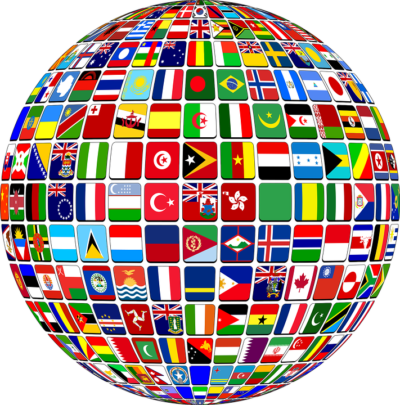Countries and Nationalities
The English word “nationality” is not used
very often in everyday conversation. It is a more formal word that is more often seen in written form in documents related to immigration or tourism.
·
Almost no one will ask “What is your nationality” in a normal conversation.
·
Instead, you might hear “Where are you from?” or “Where do you come
from?”
·
You can answer this way: “I’m (Ukrainian, American, Mexican, etc.).”
·
Or: “I am from (Ukraine,
America, Poland, etc.).”
Today we invite you to learn the names of
nationalities in English, as well as the countries they originate and the
language that is spoken there.
Nationalities
Forming nationality adjectives and nouns from country names is
not always simple in English. Use the nationality adjective ending in -ese or -ish with
a plural verb, to refer to all people of that nationality. The adjective listed
also often refers to the language spoken in the country, although this is not
always the case.
Examples
·
Country: I live in Japan.
·
Adjective: He likes Japanese food.
·
Origins: She is a Japanese person. = She is from Japan. = She is
Japanese.
·
Language: She speaks Japanese.
·
Describing
a group: Spaniards often drink wine. = Spanish people
often drink wine.
·
Describing
a group: The Chinese enjoy fireworks. = Chinese
people enjoy fireworks.
 |
Catchy
English
is good
for you


No comments:
Post a Comment